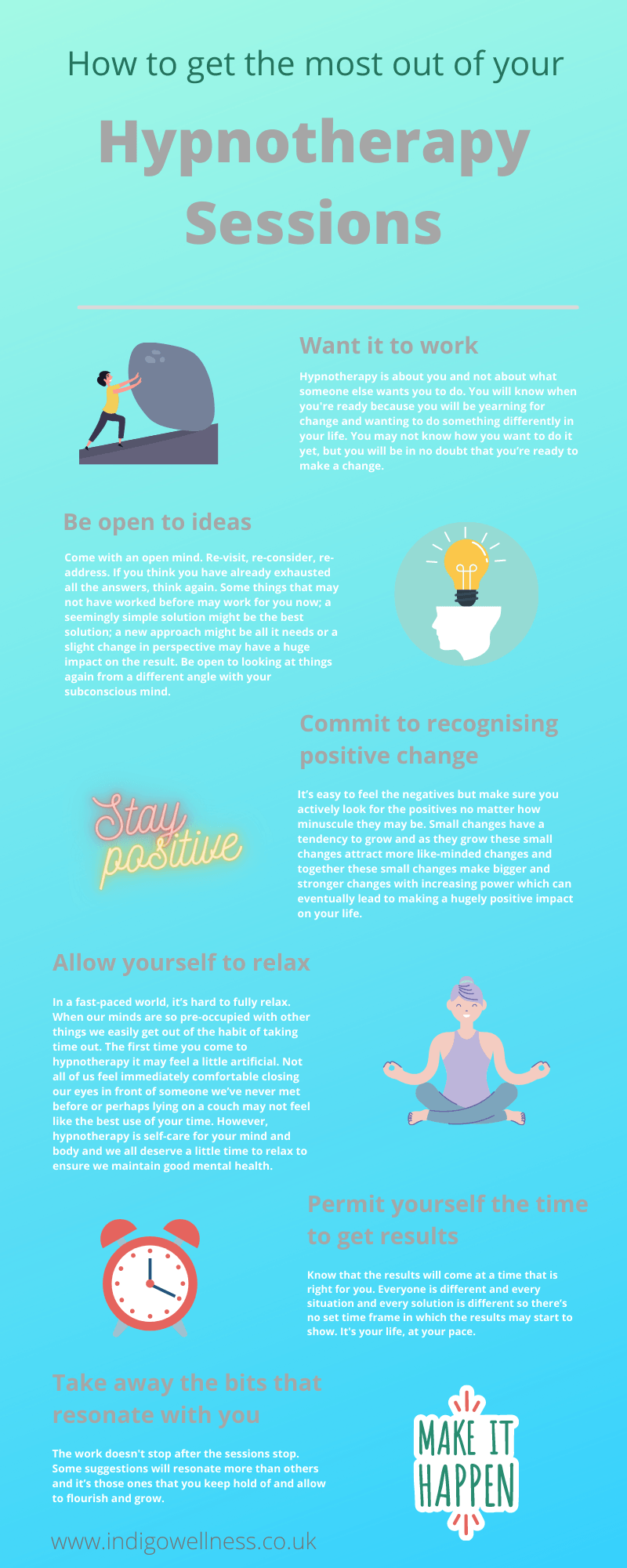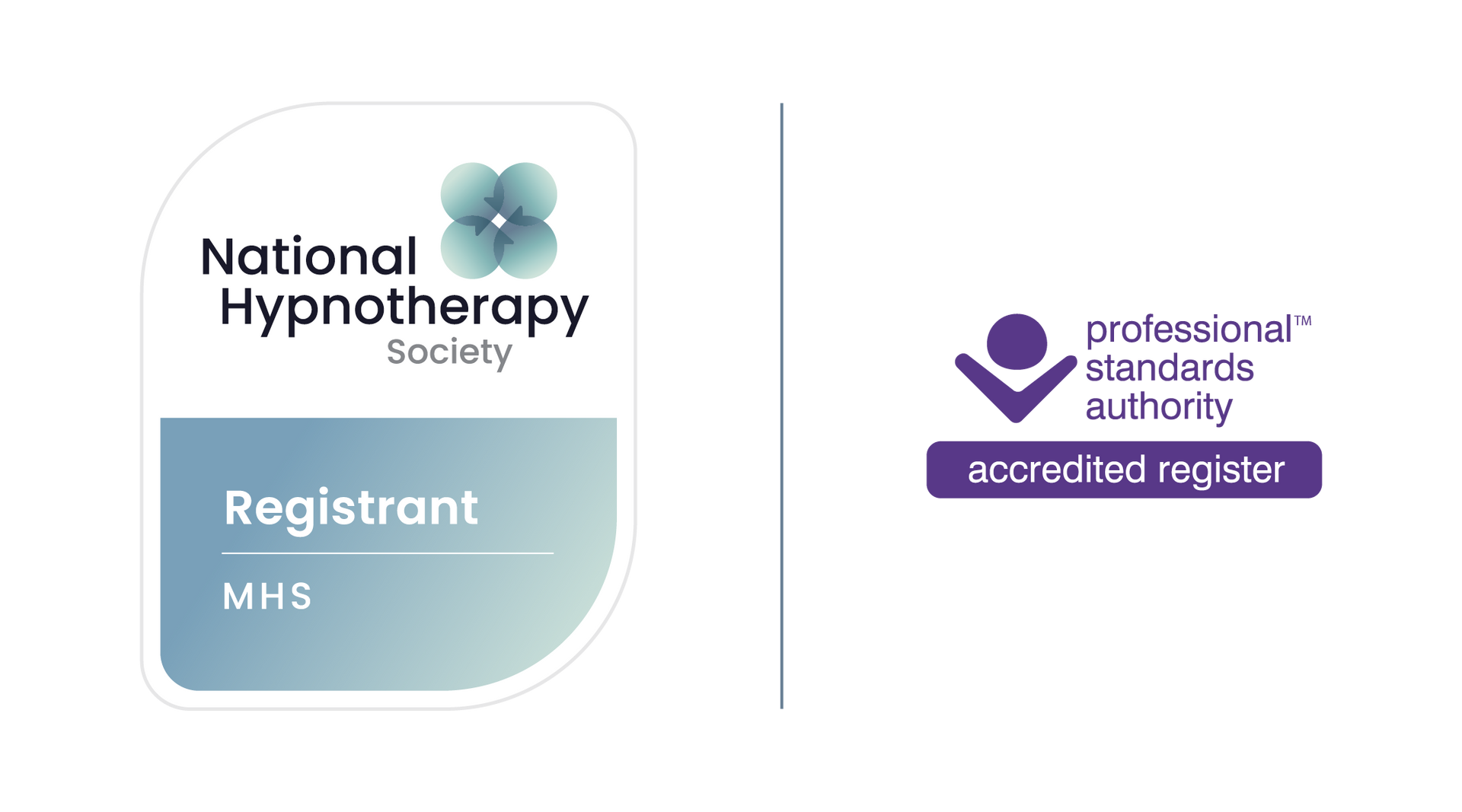Not sure what to expect?Never had hypnotherapy before? Feeling a bit uncertain? If you're considering hypnotherapy in Royston or Buntingford, read on for answers to popular questions.
FAQ's
-
What is hypnosis?
Hypnosis is a deeply relaxed subconscious state of awareness where we're not fully awake, yet at the same time we're not asleep either. It's the illusive, dreamlike place in between that we don't talk about much. A place which holds a lot of information about our past, present and future, where our thoughts, emotions and images are generated. We're aware that a lot is going on in there but not necessarily aware of what that is or how and when it happens.
Hypnosis narrows the mind's focus, like adjusting a telescope to see better and observe more detail. By doing so it encourages an openess towards considering new options and perspectives whilst being closer to all the information we store in our minds.
-
What is hypnotherapy?
Hypnotherapy is a therapy that uses hypnosis to explore thoughts, feelings, beliefs and behaviours.
If you're thinking about coming to hypnotherapy, it usually means that something isn't working for you in your life. Maybe it's something you're doing but don't want to do anymore, a feeling you can't shake, something you feel unable to do or something that has happened in your life which doesn't fit in with the way you want your life to be.
By combining a holistic mind and body approach with a practical solution-focused approach hypnotherapy uses hypnosis as a tool to communicate directly with the subconscious mind in order to tap into all the knowledge it holds about us that we're unable to consciously access. In this way we explore what we really need, want and desire and how we can use that information to take action in order to lead the best life we can.
Hypnotherapy focuses on managing symptoms through self-care, self-improvement and behaviour modification by challenging your current mindset and exploring and considering new options. A hypnotherapist is not a doctor and therefore cannot diagnose or treat any medical or psychological condition.
-
What are the aims of hypnotherapy?
It's likely you've come across a situation in your life when you know it would be in your best interests not to do something but you go ahead and do it anyway. For example, you might feel uncomfortably full after a delicious meal out, but still say yes to that irresistible dessert, despite feeling a thousand times worse as you cram in an entire second helping.
Hypnotherapy can instigate self discovery by helping you understand why you do something or what is stopping you from doing something, what makes you tick and how you can change those thought patterns or behaviours so they line up with who you are and who you want to be.
Hypnotherapy explores how your beliefs, thoughts and feelings can work with you to find new ways to get your life going in the direction you truly want.
-
Can everyone be hypnotised?
Anyone can be hypnotised. In fact we already all do it naturally to some extent when we're watching TV, reading or using our brains to create things for example. Some people do take to it more than others though, depending on how focused and relaxed they are.
-
What does is feel like to be hypnotised?
Everyone experiences hypnosis differently. It can even vary from session to session but most people agree it feels like daydreaming, only more focused and deliberate and extremely relaxing. Hypnotherapy can be as creative as you wish to take your imagination.
-
What can't hypnotherapy do?
Hypnotherapy cannot diagnose or treat the underlying cause of any mental or medical condition.
Hypnotherapy cannot make you do something you don't want to. Most people are more suggestible during hypnosis but they never lose their power to choose. If you choose to resist hypnosis, you will not be hypnotised. In the same way, if you choose not to change a certain behaviour, that behaviour will never change. Once hypnotised you'll be aware that I'm talking, can hear what I say and can choose to come out of it at any time.
-
Will I be able to move and speak?
Yes you'll still be able to move and speak during hypnosis if you want to and you'll always be in control of what you're doing and what you're saying. You can move around at any time. In fact it's important that you feel as comfortable as possible so if you feel you need to adjust your position, please do so! Likewise if you want to speak you can do so at any time and equally if you don't want to speak you don't have to either. There are times during hypnosis when it can be helpful if I ask you questions but I would always discuss this with you first.
That said, hypnosis can be very relaxing so once you're settled it's likely you won't even feel the need to move or speak, just content to relax and listen to the session.
-
Will I get stuck in hypnosis?
I'm not aware of anyone ever getting stuck in hypnosis. Some people fall asleep because they're so relaxed but they never get stuck. If you do fall asleep I will gently bring you back into the level of hypnosis and continue with the session. Even if I left you sleeping you would eventually wake up just as you would after a usual nights sleep.
-
How many sessions will I need?
Most people benefit from between 4-6 sessions (including the consultation session), depending on the reason for coming for hypnotherapy. However it is different for everyone and some things naturally take longer to work through than others so we can gauge how things progress with each session to determine what would work best for you.
-
How long between sessions?
Weekly sessions are generally the most effective as the break allows your mind enough time to process the work it has done in the session but not too long that it forgets the process. This way each session enables us to build on the work we did in the last session.
-
Is hypnotherapy confidential?
Absolutely yes. Everything you share with me from the moment we talk to each other is confidential. I work by the ethical framework of the National Hypnotherapy Society. However, there are a few rare instances when confidentiality doesn't apply and these are clearly explained in your client contract which I give to you when we work together.
-
Can you guarantee it will work?
At times hypnotherapy may feel like a magic cure but it's not. There are never any guarantees with any therapy, including hypnotherapy, but the more open and willing you are to explore the possibilities that hypnotherapy can offer, the more hynotherapy can offer you. Whilst hypnotherapy is a very relaxing therapy, it also requires action, commitment and determination on your part to put any of the ideas and plans you uncover in motion.




